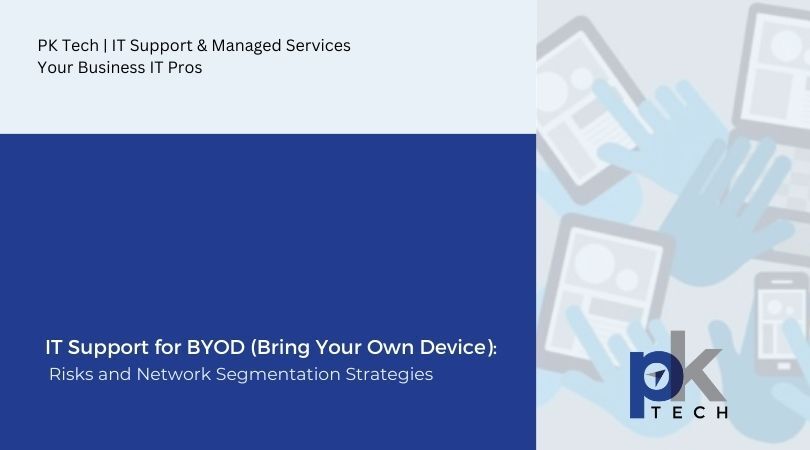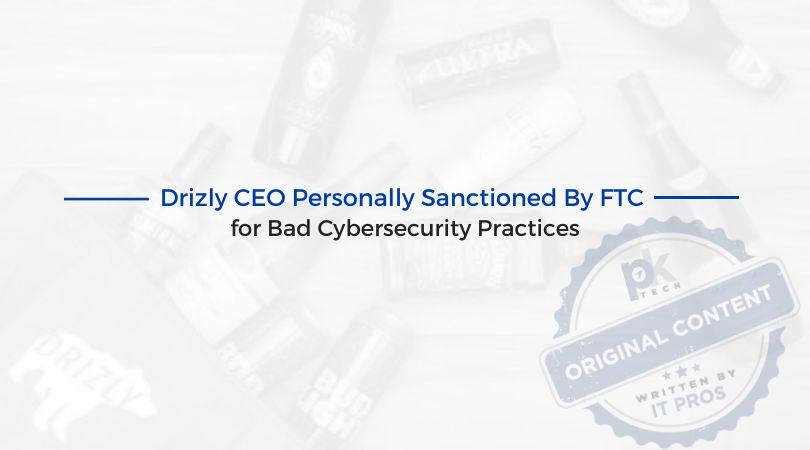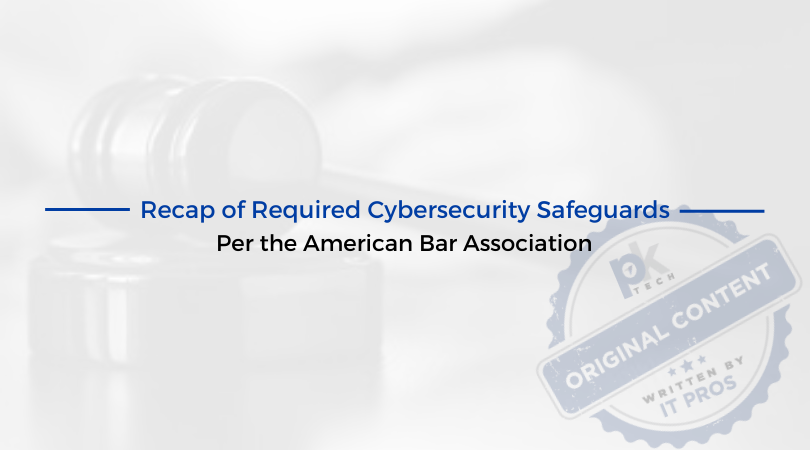IT Secret: Watch Out for Off-Brand Computers and Servers in Your Business!
There’s a trend we’ve seen over the years at businesses all over Phoenix, Scottsdale, and even in Prescott: “IT guys” selling off-brand computers and...
2 min read
PK Tech : Updated on September 3, 2025

In the past few years, and largely because of COVID, we’ve seen a dramatic increase in the adoption of BYOD (Bring Your Own Device) policies across businesses of all sizes and industries. While BYOD promotes flexibility, employee satisfaction, and even cost savings, it also introduces a host of security and compliance challenges. For industries handling sensitive data, such as CPAs, healthcare providers under HIPAA, and other professional services, the risks are particularly severe.
This blog explores the most critical BYOD risks and outlines how network segmentation and IT support strategies can mitigate those threats effectively.
BYOD policies open the door to increased productivity, but without the proper safeguards, they can become liabilities. Here's how various industries are uniquely affected:
As your managed IT partner, we assess these risks holistically to tailor BYOD strategies specific to your industry and risk profile.
One of the most effective ways to manage BYOD risk is through network segmentation. This approach involves dividing your network into separate zones with controlled access:
Our team helps you architect a logical and physical network design that enforces this segmentation, reducing lateral movement for attackers and isolating threats before they spread.
Managing personal devices introduces the challenge of inconsistent security postures. Unlike company-owned devices, employees’ smartphones and laptops may not have antivirus software, strong passwords, or updated operating systems.
To address this:
Our IT support includes proactive device management and policy enforcement, giving businesses peace of mind without compromising user flexibility.
Technology alone isn’t enough. Your BYOD strategy must be grounded in clear policies and user education:
Regular reviews and updates to the BYOD policy ensure it evolves with your business and technology landscape.
BYOD isn’t just a tech issue; it’s a business strategy that requires balance. Whether you're a CPA firm managing confidential financial data, a healthcare provider ensuring HIPAA compliance, or a growing business looking to empower your workforce, we help you implement secure, scalable BYOD environments through proven IT support and network architecture practices.
Looking to secure your BYOD program? Contact us today for a risk assessment and customized IT support plan.

There’s a trend we’ve seen over the years at businesses all over Phoenix, Scottsdale, and even in Prescott: “IT guys” selling off-brand computers and...

We’ve all been hearing the whispers that the FTC is getting more serious about ransomware and data breaches. There have been a few select examples...

Here’s an alarming stat for you: 25% of law firms have experienced a breach at some point in time. If nothing else, this tells us that cybercriminals...